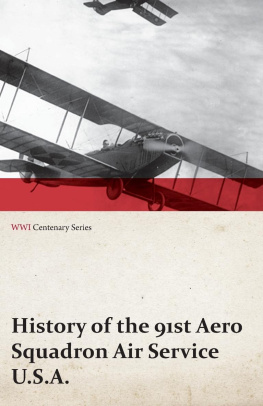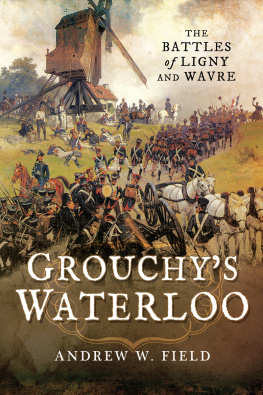AFTER a lapse of twenty years, I have resolved to give you an account of what fell under my own observation in the memorable campaign of Waterloo; and, like La Beaume, "I will describe what I saw."
With this view, I have paraded an old pocket memorandum book, which I carried on my person,the contents of which I shall give you chiefly verbatim, interweaving my own reflections and more matured opinions on the movements of our part of the British Army, commanded and led by the never-to-be-forgotten Sir Thomas Picton.
The memoranda I allude to, were principally taken at Betray, on the frontiers of France, where our division (being terribly crippled) was made the reserve of the pursuing army; therefore we had a day's halt, to lighten the numbers pressing forward by the great road and impeding the progress of the guns.
These memoranda contain all I could recollect at the time; for the awful grandeur of the scene, together with the overwhelming consequences of that short campaign, diverted my attention from many minute occurrences which afterwards (even for years,) started into my recollection.
Many of these appear to me to possess interest; and, as I have not observed them taken notice of by any of the numerous chroniclers of 1815, I wish to preserve the remembrance of them. I happened to see, in a much-respected periodical, (the United Service Journal,) an article on the subject of the campaign of Waterloo. The writer laments, that notwithstanding we have numerous histories, very few have written an account of "what they saw." This remark is sensible enough; for the utter impossibility of an actor on that scene, writing an account of the "whole battle," as falling under his own eye, must be obvious to every one; or, that the historian could describe what passed in that field, truly and accurately, without faithful narratives from competent and observing officers, of what they saw with their own eyes, and were engaged in personally.
Of the many narratives which I have perused by eye-witnesses, &c., and by Staff Officers, who could, from their positions, command a bird's eye view of the field, on occasions, when the clearing away of the smoke would admit of it, not one has been correctly written with regard to the operations of the Fifth Division, and of that only I mean to speak.
Indeed, I maintain it to be impossible, that they could give a correct account. The clouds of smoke from the artillery and musketry of both armies, rendered observation impracticable to them, while many an interesting "war passage" took place in the mele, easily distinguishable by those near at hand, (who could just see what was passing around them,) which was lost to a looker-on at a greater distance. Therefore, you must not expect from me, who was then a subaltern officer, commanding a company, an account of the "whole battle." As I proceed in my story, you will perceive by the subject, that the veil of smoke being occasionally withdrawn, permitted me to see not a little of what was going on around me.
It is, however, necessary to remind you, that the cannonade, though described by every one as lasting the whole day, was not always playing en the same part of the position. It was hot in one part, and slack in the other, as the end required. Guns also need fresh supplies of ammunition; during this operation they cease firing, and there is nothing to interrupt the view.
You will pardon the introduction of any little anecdote concerning my own personal adventures. I preserved them, with a view to their affording some amusement at a future time.
***
About the time of our entering France, the English newspapers teemed with "Letters from Brussels," "Letters from the Army," &c.
Our commanding officer, (I mean Col. C,) had them cut out of the papers, and pasted on the walls of his room, shortly after our arrival at Paris. When asked his reason for this strange whim, he replied, that he wanted to see which of them lied most! I perused some with astonishment, but none more so than the "Letters from Brussels," which gave a full, true, and particular account of our being "all surprised while at a ball given by the Duke of Richmond, and of our fighting the French in our pumps and silk stockings." I have often wondered why the ridiculous tale was never contradictedat least, I have never met with a formal refutation of it; nor even any explanation accounting for its probable origin.
With regard to the alleged surprise, Sir Walter Scott, together with numerous military writers, addressing themselves to the general reader, amply refute the assertion, so does the Duke of Wellington himself, in a letter to Sir John Sinclair .
To military men, no justification was necessary; he must be an ignoramus, indeed, who does not know that the attacking General had not, or would not have the politeness to send us word by what part of our extensive line (from Charleroi to the Sea,) he meant to penetrate, that we might there concentrate and wait for him. The enemy had the option of breaking through at any point he chose, taking care to leave us in the dark,and he chose the road to Brussels. Still Sir Walter Scott supposes, that the Duke of Wellington received the first alarm of the approach of the Emperor, when at a ball at the Duke of Richmond's. I deny this point blank! and the story "in toto," as spread by the busy tongue of rumour. Before touching on the dancing-pumps, (and many a time have I been gravely asked by people in England, if it were not true,) I will tell my version of the story.
The regiment to which I belonged, was in the brigade of the renowned Sir Dennis Pack, and division of tough old Picton, then forming part of the garrison of Brussels. The Duke of Richmond was at that time a resident in the place with his family. He frequently invited British officers to his house, and gave occasional evening parties.
On the 15th June, our Colonel told us, he was invited for that evening, and was authorised to bring two more of his officers, if agreeable to them; and, I have reason to believe, that three of a regiment at most were invited on that occasion, and these only belonging to the garrison. I had the offer of the honour, but was previously engaged at my own quarters.
A bout three o'clock of the afternoon of that day, our officers were sitting at dinner at the Hotel de Tirlemont , where we had our mess, when we heard of a commotion, or greater stir than usual, having arisen in the city; presently some Belgian gentlemen came in and told us, that there had been "an affair of posts" on the frontier, and, that the French suffered a repulse. This was the picquet affair of the Prussian General Ziethen, who had gallantly resisted the enemy's advanced guard, coming in the direction of the grande chausse to Brussels, but was driven back, or in fact he fell back, as all outposts do, as a matter of course.












